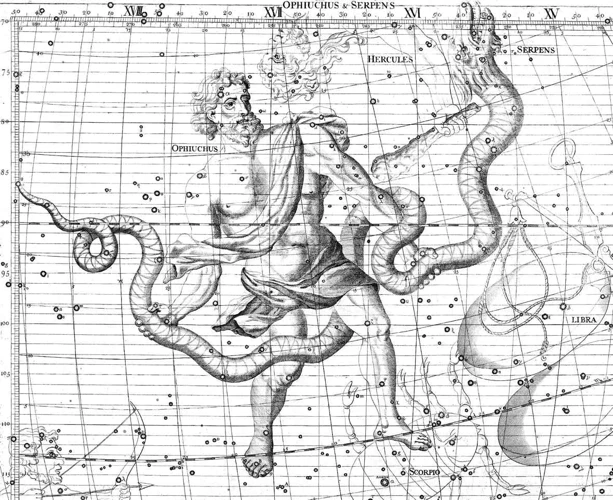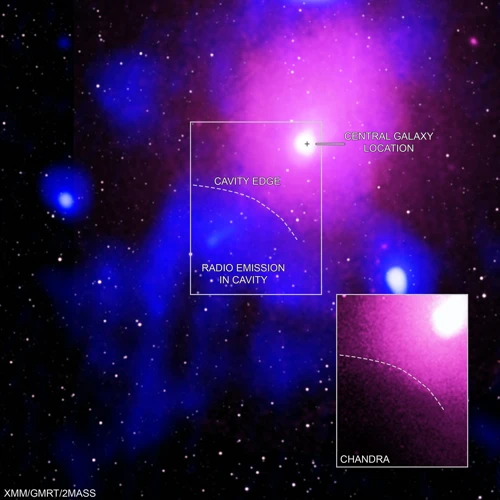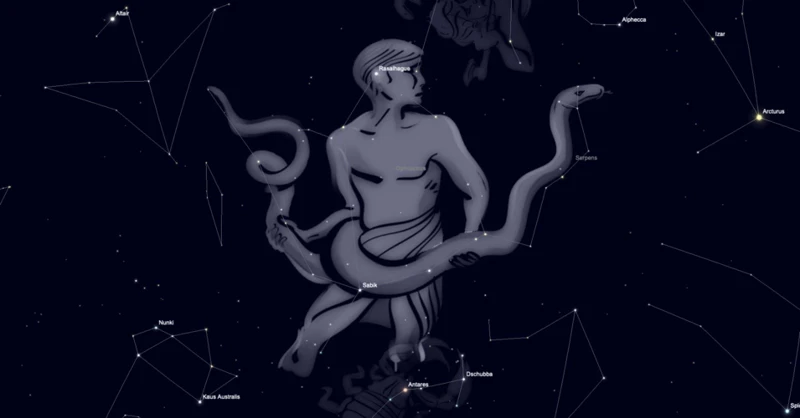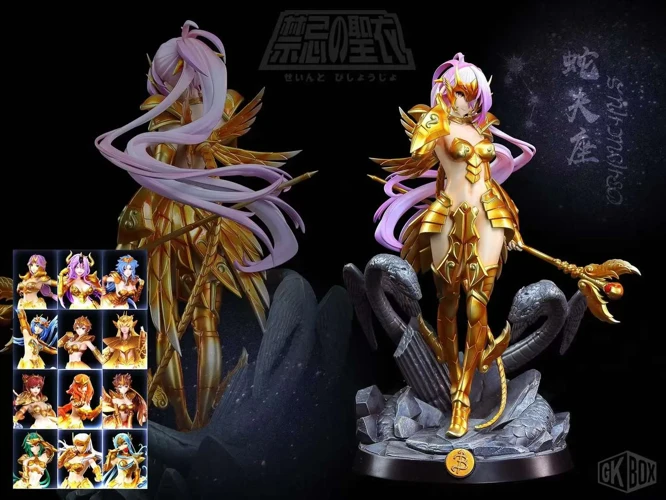The Western Zodiac and Chinese Zodiac are two ancient systems of astrology that have intrigued and fascinated people for centuries. While both systems provide insight into one’s personality traits and life path, their origins and methodologies differ significantly. The Western Zodiac, rooted in Greek mythology, assigns individuals a zodiac sign based on their date of birth and divides the year into twelve equal parts. On the other hand, the Chinese Zodiac, originating from ancient Chinese culture, is based on a twelve-year cycle represented by animals. These distinct approaches to astrology reflect the diverse cultures and belief systems from which they emerged. In this article, we will explore the origins and differences of these two zodiac systems, as well as their similarities, shedding light on the fascinating world of astrology.
Contents
- Origins
- Differences
- Similarities
- Conclusion
- Frequently Asked Questions
- References
-
Frequently Asked Questions
- 1. How are the Western Zodiac and Chinese Zodiac related?
- 2. What is the origin of the Western Zodiac?
- 3. How did the Chinese Zodiac come into existence?
- 4. What are the astrological concepts associated with the Western Zodiac?
- 5. What astrological concepts are associated with the Chinese Zodiac?
- 6. What is the significance of animal symbolism in the Western Zodiac?
- 7. How does animal symbolism differ in the Chinese Zodiac?
- 8. How are numerical systems used in the Western Zodiac?
- 9. Are there any numerical systems in the Chinese Zodiac?
- 10. How do the Western and Chinese Zodiacs differ in their division of time?
- References
- Read More
Origins

The Western Zodiac and Chinese Zodiac have distinct origins that trace back to different cultural traditions. The Western Zodiac finds its roots in ancient Greek mythology, with the twelve zodiac signs being associated with various gods and goddesses. For example, Aries is linked to the Greek god Ares, known for his bravery and assertiveness. In contrast, the Chinese Zodiac draws its origins from ancient Chinese culture, specifically the Jade Emperor’s legendary great race that determined the order of the zodiac animals. Each animal represents a specific set of characteristics and qualities that are believed to influence a person’s life. It is fascinating to see how these two zodiac systems have evolved and developed within their respective cultures.
Western Zodiac Origins
The Western Zodiac, with its origins deeply rooted in ancient Greek mythology, is a fascinating system that assigns zodiac signs to individuals based on their date of birth. The origins of the Western Zodiac can be traced back to the story of the twelve labors of Heracles, the greatest hero of Greek mythology. According to the myth, Heracles was assigned twelve seemingly impossible tasks by King Eurystheus. These tasks symbolize the challenges and trials that individuals born under each zodiac sign may encounter throughout their lives. Each zodiac sign has a specific constellation associated with it, representing the heroes and mythical creatures from Greek mythology. For instance, Leo is associated with the mighty lion, which was believed to be invincible and represented strength and courage. By understanding the mythology and stories behind each zodiac sign, we gain a deeper appreciation for the rich cultural heritage that forms the basis of the Western Zodiac. To learn more about the astrological significance of Ophiuchus, read our article on the astrological significance of Ophiuchus today.
Chinese Zodiac Origins
The Chinese Zodiac has its origins deeply rooted in ancient Chinese mythology and folklore. Legend has it that the Jade Emperor, the ruler of heaven, wanted to devise a way of measuring time and organizing the animal kingdom. To accomplish this, he held a race among various animals, where the order in which they finished would determine their position in the zodiac cycle. The rat, being small and cunning, managed to hitch a ride on the back of the ox and cleverly jumped ahead to win the race. The ox placed second, followed by the tiger, rabbit, dragon, snake, horse, goat, monkey, rooster, dog, and finally, the pig. Each animal was assigned a year, creating the twelve-year cycle that is the basis of the Chinese Zodiac. The Chinese Zodiac not only serves as a way to mark time but also holds significance in Chinese culture and astrology. Each animal is believed to have specific characteristics and traits that influence a person’s personality and destiny. The Chinese Zodiac Origins are fascinating, as they combine folklore, mythology, and symbolism to create a unique and intricate system of divination and self-discovery.
Differences

The Western Zodiac and Chinese Zodiac differ in several key aspects, reflecting the diverse cultural perspectives from which they originated. One major difference lies in their astrological concepts. The Western Zodiac focuses on the positioning of the sun relative to the Earth, dividing the year into twelve equal parts, with each sign encompassing around a month. In contrast, the Chinese Zodiac follows a twelve-year cycle, with each year associated with a specific animal. Another difference lies in their animal symbolism. The Western Zodiac uses a variety of animals, including mythical creatures like the Centaur in Sagittarius, whereas the Chinese Zodiac exclusively features animals like the Rat, Ox, and Dragon, each representing different traits and characteristics. The Western Zodiac utilizes a numerical system based on astrological placements, while the Chinese Zodiac is based on the lunar calendar and uses a cyclical order of twelve animals. These differences highlight the distinct approaches and cultural variations found within these two ancient systems.
Astrological Concepts
Astrological Concepts play a fundamental role in both the Western Zodiac and Chinese Zodiac systems, although they differ in their approach and methodologies. In the Western Zodiac, astrological concepts are based on the positioning of celestial bodies, particularly the sun, moon, and planets, at the time of a person’s birth. Each zodiac sign is associated with specific traits and characteristics that are believed to influence an individual’s personality and destiny. The Western Zodiac also takes into account the movement of the Earth around the sun, which determines the yearly cycle of zodiac signs. On the other hand, the Chinese Zodiac focuses on the interaction between the five elements—wood, fire, earth, metal, and water—and the twelve zodiac animals. Each animal is associated with a particular element, creating a sixty-year cycle that repeats. The combination of the animal and the element is believed to influence a person’s traits, compatibility with others, and fortune throughout their life. While the Western Zodiac emphasizes celestial positioning and the yearly cycle, the Chinese Zodiac places importance on the elements and the long-term cycles. Understanding these astrological concepts is key to unlocking the insights provided by both zodiac systems and can help individuals gain a deeper understanding of themselves and their place in the world.
Animal Symbolism
In both the Western Zodiac and Chinese Zodiac, animal symbolism plays a significant role. In the Western Zodiac, each zodiac sign is associated with a specific animal symbol, representing certain characteristics and traits. For instance, Aries is represented by a ram, symbolizing assertiveness and a strong desire for leadership. Taurus is represented by a bull, symbolizing strength and determination. These animal symbols provide a visual representation of the qualities and characteristics associated with each zodiac sign.
Similarly, the Chinese Zodiac is famously known for its animal symbolism. Instead of representing individual zodiac signs, each animal represents an entire year within a twelve-year cycle. Each animal symbol has its own unique qualities and is believed to influence the personality traits and destiny of individuals born in that specific year. The Rat is the first animal in the Chinese Zodiac, symbolizing intelligence and quick thinking. The Ox symbolizes diligence and hard work, while the Dragon represents power and good fortune. The symbolism of these animals adds depth and meaning to the Chinese Zodiac, providing insight into the qualities and traits associated with individuals born in each year of the cycle.
It is interesting to note that animal symbolism extends beyond the traditional zodiac signs as well. For example, the lesser-known Ophiuchus, represented by the serpent, is associated with wisdom and transformation. While not officially recognized in the traditional Western Zodiac, Ophiuchus is sometimes considered as the thirteenth zodiac sign, bringing its own unique animal symbolism and characteristics.
In ancient Egyptian mythology, animals also held significant symbolism. The battle between the deities Horus and Set, for instance, reflects the eternal struggle between good and evil. Horus, depicted as a falcon, represents light, justice, and divine kingship. Set, portrayed as an animal with a canine-like head, represents chaos and disorder. The battle between Horus and Set highlights the importance of balance and the eternal struggle to maintain order against chaos, virtues that are reflected in the ancient Egyptian belief system.
Animal symbolism in both the Western Zodiac and Chinese Zodiac adds depth and intrigue to the astrological systems, capturing the essence of various qualities, characteristics, and mythical stories associated with each animal. These animal symbols serve as visual representations of the traits and influences believed to shape individual destinies and personalities.
Numerical Systems
In terms of numerical systems, the Western Zodiac and Chinese Zodiac follow different approaches. The Western Zodiac utilizes a twelve-month calendar system, where each zodiac sign corresponds to a specific month of the year. This system is based on the position of the sun relative to the Earth during different times of the year. On the other hand, the Chinese Zodiac follows a twelve-year cycle, with each year being associated with a specific animal. These animals are assigned in a specific order – Rat, Ox, Tiger, Rabbit, Dragon, Snake, Horse, Sheep, Monkey, Rooster, Dog, and Pig – and repeat continuously. The numerical progression in the Western Zodiac is linear, with each sign following the previous one in a sequential order, while the Chinese Zodiac operates in a cyclical manner. This distinction highlights the diverse ways in which numbers and cycles are utilized in these two zodiac systems.
Similarities

The Western Zodiac and Chinese Zodiac, despite their differences, also share some intriguing similarities. Firstly, both systems divide time into distinct categories. The Western Zodiac divides the year into twelve equal parts, with each zodiac sign corresponding to a specific period. Similarly, the Chinese Zodiac operates on a twelve-year cycle, with each year associated with a particular animal sign. Both systems provide a systematic way of organizing time and understanding the influence of celestial bodies on individuals. Secondly, these zodiac systems believe in the influence of celestial bodies on personality traits and life paths. While the Western Zodiac associates personality traits with zodiac signs, the Chinese Zodiac attributes specific characteristics to individuals born in certain animal years. Both systems suggest a link between celestial alignments and the development of individuals’ personalities and destinies. It is intriguing to see these parallels between two ancient astrological traditions.
Division of Time
The division of time is a significant aspect that sets the Western Zodiac and Chinese Zodiac apart. In the Western Zodiac, the year is divided into twelve equal parts, with each part representing a zodiac sign. These signs are determined by the position of the sun at the time of an individual’s birth. Each zodiac sign spans roughly a month, starting from the spring equinox with Aries and ending with Pisces in late winter. This system allows for a more precise categorization of individuals based on their birth dates.
In contrast, the Chinese Zodiac follows a twelve-year cycle, with each year being represented by a specific animal. Instead of dividing time into months, the Chinese Zodiac focuses on larger intervals. Each animal sign is believed to influence the personality traits and life path of an individual born in that particular year. This system provides a broader approach to understanding one’s character and destiny based on the year they were born.
The Western Zodiac’s division of time into twelve equal parts allows for a more detailed analysis of an individual’s personality traits and compatibility with others based on their zodiac sign. Meanwhile, the Chinese Zodiac’s division of time into twelve-year cycles provides a broader perspective on a person’s life journey and how it aligns with the characteristics associated with each animal sign.
Understanding the different approaches to the division of time in the Western and Chinese Zodiac can deepen our appreciation for the rich diversity of astrological systems around the world. It is intriguing to observe how different cultures have developed unique methods of categorizing and interpreting time in relation to human personality and destiny.
Influence on Personality
The influence on personality is a fascinating aspect of both the Western Zodiac and Chinese Zodiac. In the Western Zodiac, each zodiac sign is believed to influence specific personality traits and characteristics. For example, individuals born under the sign of Leo are often associated with qualities such as confidence, leadership, and creativity, while those born under the sign of Cancer are believed to possess sensitivity, empathy, and nurturing tendencies. Similarly, in the Chinese Zodiac, each animal is said to have distinct characteristics that shape an individual’s personality. The Rat is associated with intelligence, adaptability, and quick thinking, while the Dragon is often linked to power, strength, and ambition. These beliefs about the influence of zodiac signs on personality serve as a guideline for understanding oneself and others better. By exploring the traits attributed to each zodiac sign, individuals can gain insight into their own strengths and weaknesses, as well as how they may interact with others. It is important to note that while these interpretations provide a general understanding, individual variation and personal experiences also play a significant role in shaping personality traits.
Conclusion

In conclusion, the Western Zodiac and Chinese Zodiac are two distinct systems of astrology that have captivated individuals around the world. While they differ in their origins, astrological concepts, animal symbolism, and numerical systems, they also share some similarities, such as the division of time and their influence on personality traits. The Western Zodiac, with its twelve zodiac signs based on Greek mythology, offers insights into an individual’s character based on their date of birth. On the other hand, the Chinese Zodiac, represented by twelve animal signs, provides a unique perspective on personality traits and life path. Both systems have their own cultural significance and offer different lenses through which to understand ourselves and others. Whether one follows the Western Zodiac or the Chinese Zodiac, these astrological systems continue to fascinate and provide guidance for those seeking to delve into the mysteries of human existence. To further explore the complexities of astrology, you may be interested in learning about the significance of Ophiuchus in today’s astrological landscape.
Frequently Asked Questions

FAQs about the Western Zodiac and Chinese Zodiac
1. What are the main differences between the Western Zodiac and the Chinese Zodiac?
The main differences lie in their origins and methodologies. The Western Zodiac is based on Greek mythology and divides the year into twelve parts, with each part represented by a zodiac sign. The Chinese Zodiac, on the other hand, is rooted in Chinese culture and follows a twelve-year cycle represented by animals.
2. Can someone have a Western Zodiac sign and a Chinese Zodiac sign?
Absolutely! The Western Zodiac and Chinese Zodiac are independent systems, so it is possible for someone to have a specific zodiac sign in both systems. It adds an interesting layer to their astrological profile.
3. Are the zodiac signs in the Western Zodiac and Chinese Zodiac the same?
No, the zodiac signs in the Western Zodiac and Chinese Zodiac are not the same. The Western Zodiac consists of twelve signs such as Aries, Taurus, and Gemini, while the Chinese Zodiac has twelve signs represented by animals like the Rat, Ox, and Tiger.
4. How are zodiac signs determined in the Western Zodiac?
In the Western Zodiac, zodiac signs are determined based on an individual’s date of birth. Each month is associated with a specific zodiac sign, and the sign is determined by the position of the sun during that time.
5. How are zodiac signs determined in the Chinese Zodiac?
In the Chinese Zodiac, zodiac signs are determined by the year of birth. Each year is associated with a specific animal sign in a twelve-year cycle.
6. Are there any similarities between the Western Zodiac and Chinese Zodiac?
Yes, there are some similarities between the two systems. Both zodiacs are used to interpret personality traits and characteristics, and they both divide time into specific intervals.
7. What is the significance of the animal symbolism in the Chinese Zodiac?
The animal symbolism in the Chinese Zodiac is believed to represent certain qualities and traits. Each animal has its own characteristics and influences individuals born in that particular year.
8. Are there any other zodiac systems besides the Western and Chinese Zodiac?
Yes, there are other zodiac systems in different cultures around the world. For example, Vedic Astrology in India has its own zodiac system called the Vedic Zodiac, which is based on the movement of the moon.
9. Can the zodiac signs in both systems impact a person’s life and relationships?
Many people believe that the zodiac signs in both systems can have an influence on a person’s life and relationships. Astrologers use these signs to provide insights into personality traits, compatibility, and life paths.
10. Do the Western Zodiac and Chinese Zodiac have any bearing on horoscopes and predictions?
Yes, both the Western Zodiac and Chinese Zodiac play a part in creating horoscopes and predictions. Astrologers consider the zodiac signs in both systems when offering insights and forecasts for individuals based on their birth details.
References
- Chinese and Western Zodiacs: So Different. So Similar.
- Chinese Zodiac Vs. Western Zodiac — Astrologers Explain …
- Chinese vs. Western Astrology: What Are the Differences?
Frequently Asked Questions

The Western Zodiac and Chinese Zodiac are both systems used to categorize individuals based on their birth dates. However, they differ in their origins, astrological concepts, and animal symbolism.
2. What is the origin of the Western Zodiac?
The Western Zodiac dates back to ancient Mesopotamia and Greece, where it was developed based on the positions of the stars and planets at the time of a person’s birth.
3. How did the Chinese Zodiac come into existence?
The Chinese Zodiac has its roots in ancient Chinese folklore and mythology. It was developed based on the twelve animals that were believed to have been chosen by the Jade Emperor to represent different years in the lunar calendar.
4. What are the astrological concepts associated with the Western Zodiac?
The Western Zodiac is based on the concept of the zodiacal belt, which is divided into twelve equal parts, each associated with a specific constellation. The placement of the Sun at the time of birth determines a person’s zodiac sign.
5. What astrological concepts are associated with the Chinese Zodiac?
The Chinese Zodiac is based on a twelve-year cycle, with each year associated with a specific animal. These animals are believed to influence a person’s characteristics and destiny based on the year they were born.
6. What is the significance of animal symbolism in the Western Zodiac?
In the Western Zodiac, each zodiac sign is associated with a particular animal symbol, such as a ram for Aries or a lion for Leo. These animal symbols represent various qualities and traits believed to be associated with individuals born under each sign.
7. How does animal symbolism differ in the Chinese Zodiac?
In the Chinese Zodiac, each animal represents a whole year, rather than a specific zodiac sign. Each animal is believed to have its own unique characteristics and influence on the personality traits and destiny of individuals born in that particular year.
8. How are numerical systems used in the Western Zodiac?
In the Western Zodiac, numerical systems are not directly associated with zodiac signs. However, astrology in the Western tradition often uses numerology, which attributes certain meanings and symbolism to numbers in relation to an individual’s personality and life path.
9. Are there any numerical systems in the Chinese Zodiac?
No, the Chinese Zodiac does not directly incorporate numerical systems. Instead, the focus is on the twelve animal signs and the cyclical nature of the twelve-year cycle.
10. How do the Western and Chinese Zodiacs differ in their division of time?
The Western Zodiac divides time based on the position of the Sun in relation to the twelve zodiac constellations. On the other hand, the Chinese Zodiac divides time into twelve-year cycles, with each year represented by a specific animal.
References
- Do you know the differences between the Chinese Zodiac …
- Chinese vs. Western Astrology: What Are the Differences?
- Chinese Zodiac vs Western Zodiac







